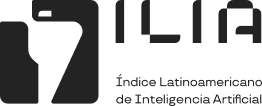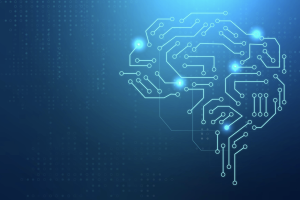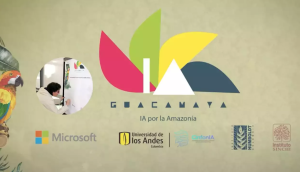To assess each country’s preparedness for implementing Artificial Intelligence ethically and responsibly, UNESCO developed a tool called the Readiness Assessment Methodology (RAM).
In Latin America, 14 countries are currently implementing it, with Chile standing out as a global model, being the first to complete the assessment.
If there’s one area where consensus exists regarding Artificial Intelligence (AI), it’s the need for appropriate regulation to maximize its benefits and mitigate risks.
In 2017, Canada launched the world’s first national AI strategy, and according to the AI Index Report 2023 from Stanford University’s Human-Centered Artificial Intelligence Institute (HAI), 62 AI strategies have since been introduced globally, with 14 more in development, and 127 countries now have at least one AI-related law.
However, it was not until the 41st General Conference of the United Nations Educational, Scientific and Cultural Organization (UNESCO) in November 2021 that the world gained its first global framework for the ethical development of AI.
The rapid adoption of this technology and its impact on society had become a priority for UNESCO, which, in a 2019 plenary session, approved the creation of a global regulatory framework. In early 2021, UNESCO conducted a multidisciplinary consultation with global experts to establish principles and guidelines for the responsible development and use of AI. These principles were enshrined in the Recommendation on the Ethics of AI, a framework approved by UNESCO’s 193 member countries at the 41st Conference. “It is the first global instrument accepted and adopted by this many countries,” says Natalia González, UNESCO’s AI Ethics Coordinator for Latin America and the Caribbean.
The organization developed this recommendation as a guide to help governments, companies, and organizations better prepare to address, mitigate, and resolve the undesirable effects of AI. It covers 11 policy areas, including ethical governance, data policy, education, health, and research. The framework promotes AI literacy, ethical research empowerment in education and e-learning, and interdisciplinary research through investments and sector collaborations that respect human rights.
To implement the Recommendation on the Ethics of AI, UNESCO developed a concrete tool, the Readiness Assessment Methodology (RAM), designed to assess—through questionnaires and other participatory tools—how prepared a country is for the ethical implementation of AI across five dimensions: legal/regulatory, social/cultural, economic, scientific/educational, and technological/infrastructural.
A Practical Methodology
This tool helps countries evaluate whether their AI laws and policies are appropriate and aligned with UNESCO’s Ethical Recommendation principles, ensuring the positive development of AI that respects fundamental human rights.
RAM implementation involves forming national teams, hiring local consultants, and organizing events and workshops with stakeholders from the public and private sectors, academia, and social organizations.
Public sector participants use the RAM questionnaire to evaluate AI in the five mentioned dimensions, with the results guiding necessary institutional and regulatory changes. This information is complemented by data from the private and civil sectors gathered in interdisciplinary workshops. Finally, the AI Readiness Assessment Report is published, presenting RAM results and policy recommendations to address governance gaps and ensure a responsible AI ecosystem aligned with UNESCO’s Recommendation.
Globally, about 50 countries are working with this methodology, including 14 in Latin America. Chile was the first country worldwide to complete the RAM implementation and publish its final report. In the coming months, reports from Uruguay, the Dominican Republic, and Cuba are expected, while other countries continue their processes. “UNESCO has been using Chile and Uruguay as global examples due to their progress and leadership in this area,” says the international organization’s expert.
The Chilean Experience
Chile’s RAM implementation process comprised four phases and was completed in under a year. It was conducted by the Chilean consulting firm Foresight, contracted by UNESCO, with direct collaboration from Chile’s Ministry of Science, Technology, Knowledge, and Innovation. The project aimed to update Chile’s National AI Policy (2021), which was presented last May and incorporated all RAM recommendations. “The RAM process in Chile coincided with the release of the 2023 Latin American AI Index and the update of the National AI Policy. This placed Chile in a favorable position, allowing it to gather valuable information on its AI status and sparking discussions in areas previously overlooked,” explains José Guridi, co-founder of Foresight, the consulting firm responsible for RAM in Chile.
In the first phase, an interministerial commission was formed to diagnose AI within the state using the RAM questionnaire. Workshops were held across six macro-regions, engaging 300 participants from various sectors to gather insights on AI’s opportunities and challenges. This phase concluded with a roadmap reviewed by ministerial counterparts and an evaluation report with recommendations. “UNESCO’s RAM recommendations were invaluable in focusing efforts during the update of Chile’s National AI Policy (PNIA), advancing cultural and social impacts, establishing ethical principles, and promoting responsibility and transparency in AI development and use,” says Chile’s Minister of Science, Technology, Knowledge, and Innovation, Aisén Etcheverry.
In addition to informing the PNIA, the findings were incorporated into a bill presented to the Chilean Congress in May 2024. The bill promotes human-centered AI, aiming to protect health, safety, fundamental rights, and consumers. It proposes a combination of self-regulation and risk-based regulation, categorizing AI systems by threat level and aligning with the ethical principles of UNESCO’s Recommendation on the Ethics of AI, the minister notes.
The consultant indicated that a highlight of Chile’s experience was the participatory nature of the RAM implementation, enriching the results by considering public sentiment about AI. “In Chile, we found an overall optimistic view of AI, seen as a powerful potential to be harnessed,” Guridi explains.
The final RAM report recommends that Chile prioritize data protection and cybersecurity laws, formulate municipal-level AI strategies, evaluate AI’s impact on culture and the environment, attract investment in technological infrastructure, and mitigate workforce impacts through retraining plans. It also proposes adaptive governance, recommending the creation of a specialized body to oversee AI policy implementation, ensure alignment with current legislation, and suggest regulatory improvements.
The report is now publicly available and will become part of UNESCO’s AI Ethics Observatory, a platform for sharing best practices globally. Meanwhile, UNESCO will work with countries that have completed the RAM process to adjust and update methodologies. “Future dynamics will involve periodic review and adaptation of strategies due to rapid technological advancement,” says UNESCO’s Natalia González.






